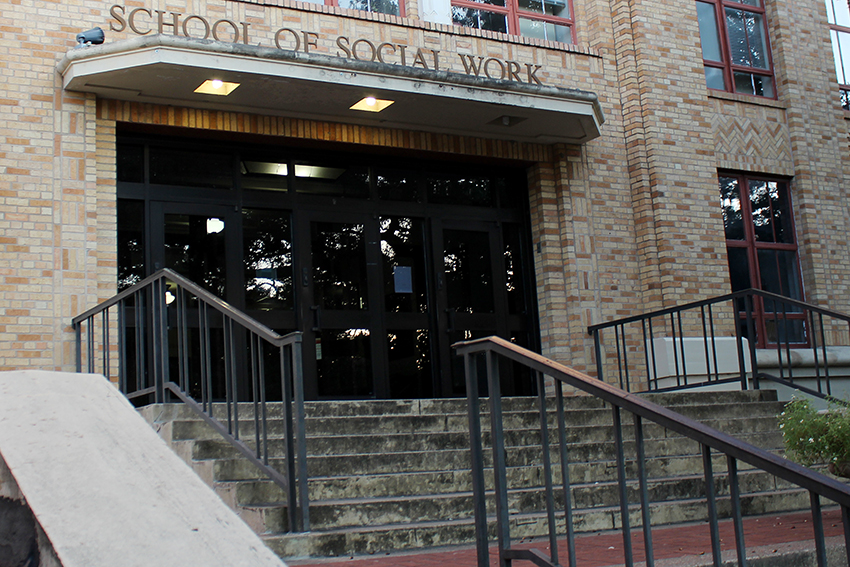UT social work students and professors opposed a now-rescinded rule that would have allowed social workers in Texas to turn away clients because of their sexual orientation, gender identity or disability status.
The Texas State Board of Social Worker Examiners passed the rule change Oct. 12, which was recommended by the governor’s office to make the code of conduct align with state law, according to The Texas Tribune. On Tuesday, the Texas Behavioral Health Executive Council restored the protections after public backlash.
Luis Zayas, dean of the School of Social Work, and Allan Cole, senior associate dean for academic affairs in the School of Social Work, released a public statement denouncing the rule on Oct. 21, before protections were restored.
“This decision threatens the practice of licensed professional social workers and the many Texans they are dedicated to serving,” they said in the statement.
Social workers provide a range of duties to support people’s well-being, including mental health and welfare services, according to the Social Work Guide. Sandy Magaña, a social work professor who specializes in autism and neurodevelopmental disabilities, said the rule would have negatively impacted students and community members with disabilities.
“We do have students on campus who are on the autism spectrum … (and) programs serving individuals with intellectual disabilities,” Magaña said. “They’re particularly going to need that mental health counseling to help with (mental health issues).”
Magaña also said LGBTQ+ people who are in need of social work services could have been negatively affected.
“In parts of Texas where values might be different than there might be in Austin, people might use (the rule) as a reason to discriminate because they don’t believe they should serve (LGBTQ+ community members),” Magaña said.
Emily Neie, a social work masters student and founding member of the UT Queer Social Work Collective, said she felt numb when the rule first came out.
“Trying to seek services can be a very vulnerable thing, so protecting people that are already in a more vulnerable position … is not meant to be inherently political,” Neie said.
Zayas, Magaña and Neie all said they welcomed the rule’s reversal.
“The (rule’s reversal) was, simply, the right thing to do,” Zayas said in an email. “In reversing its earlier decision, the state board put the interest of all Texans first, not just the interests of social workers.”
Social work senior Iris Kim said as someone who has worked with clients the rule potentially would have affected, she was overjoyed it was rescinded. But Kim said she is still shocked that it was passed in the first place.
“It just felt like (this rule) came out of nowhere,” Kim said. “There’s never really any reason to remove nondiscriminatory language. We should have these protective measures in place.”
Neie said many LGBTQ+ social workers are used to their identities and communities being politicized.
“Let this be a wake-up call that just because a code of ethics exists doesn’t inherently mean that every single person entering into that career or calling inherently agrees with the code of ethics, and (they) may try to find ways to challenge it,” Neie said.





















